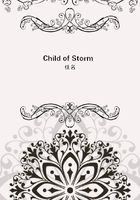
第44章
Yet, looking back on these events, how could I foresee what would be the end of the madness of Saduko, of the fearful machinations of Mameena, and of the weakness of Umbelazi when she snared him in the net of her beauty, thus bringing about his ruin, through the hate of Saduko and the ambition of Cetewayo? How could I know that, at the back of all these events, stood the old dwarf, Zikali the Wise, working night and day to slake the enmity and fulfil the vengeance which long ago he had conceived and planned against the royal House of Senzangakona and the Zulu people over whom it ruled?
Yes, he stood there like a man behind a great stone upon the brow of a mountain, slowly, remorselessly, with infinite skill, labour, and patience, pushing that stone to the edge of the cliff, whence at length, in the appointed hour, it would thunder down upon those who dwelt beneath, to leave them crushed and no more a people. How could I guess that we, the actors in this play, were all the while helping him to push that stone, and that he cared nothing how many of us were carried with it into the abyss, if only we brought about the triumph of his secret, unutterable rage and hate?
Now I see and understand all these things, as it is easy to do, but then I was blind; nor did the Voices reach my dull ears to warn me, as, how or why I cannot tell, they did, I believe, reach those of Zikali.
Oh, what was the sum of it? Just this, I think, and nothing more--that, as Saduko and the others were Mameena's tools, and as all of them and their passions were Zikali's tools, so he himself was the tool of some unseen Power that used him and us to accomplish its design. Which, I suppose, is fatalism, or, in other words, all these things happened because they must happen. A poor conclusion to reach after so much thought and striving, and not complimentary to man and his boasted powers of free will; still, one to which many of us are often driven, especially if we have lived among savages, where such dramas work themselves out openly and swiftly, unhidden from our eyes by the veils and subterfuges of civilisation. At least, there is this comfort about it--that, if we are but feathers blown by the wind, how can the individual feather be blamed because it did not travel against, turn or keep back the wind?
Well, let me return from these speculations to the history of the facts that caused them.
Just as--a little too late--I had made up my mind that I would go after my own business, and leave Saduko to manage his, through the fence gateway appeared the great, tall Umbelazi leading by the hand a woman.
As I saw in a moment, it did not need certain bangles of copper, ornaments of ivory and of very rare pink beads, called infibinga, which only those of the royal House were permitted to wear, to proclaim her a person of rank, for dignity and high blood were apparent in her face, her carriage, her gestures, and all that had to do with her.
Nandie the Sweet was not a great beauty, as was Mameena, although her figure was fine, and her stature like that of all the race of Senzangakona--considerably above the average. To begin with, she was darker in hue, and her lips were rather thick, as was her nose; nor were her eyes large and liquid like those of an antelope. Further, she lacked the informing mystery of Mameena's face, that at times was broken and ]it up by flashes of alluring light and quick, sympathetic perception, as a heavy evening sky, that seems to join the dim earth to the dimmer heavens, is illuminated by pulsings of fire, soft and many-hued, suggesting, but not revealing, the strength and splendour that it veils. Nandie had none of these attractions, which, after all, anywhere upon the earth belong only to a few women in each generation.
She was a simple, honest-natured, kindly, affectionate young woman of high birth, no more; that is, as these qualities are understood and expressed among her people.